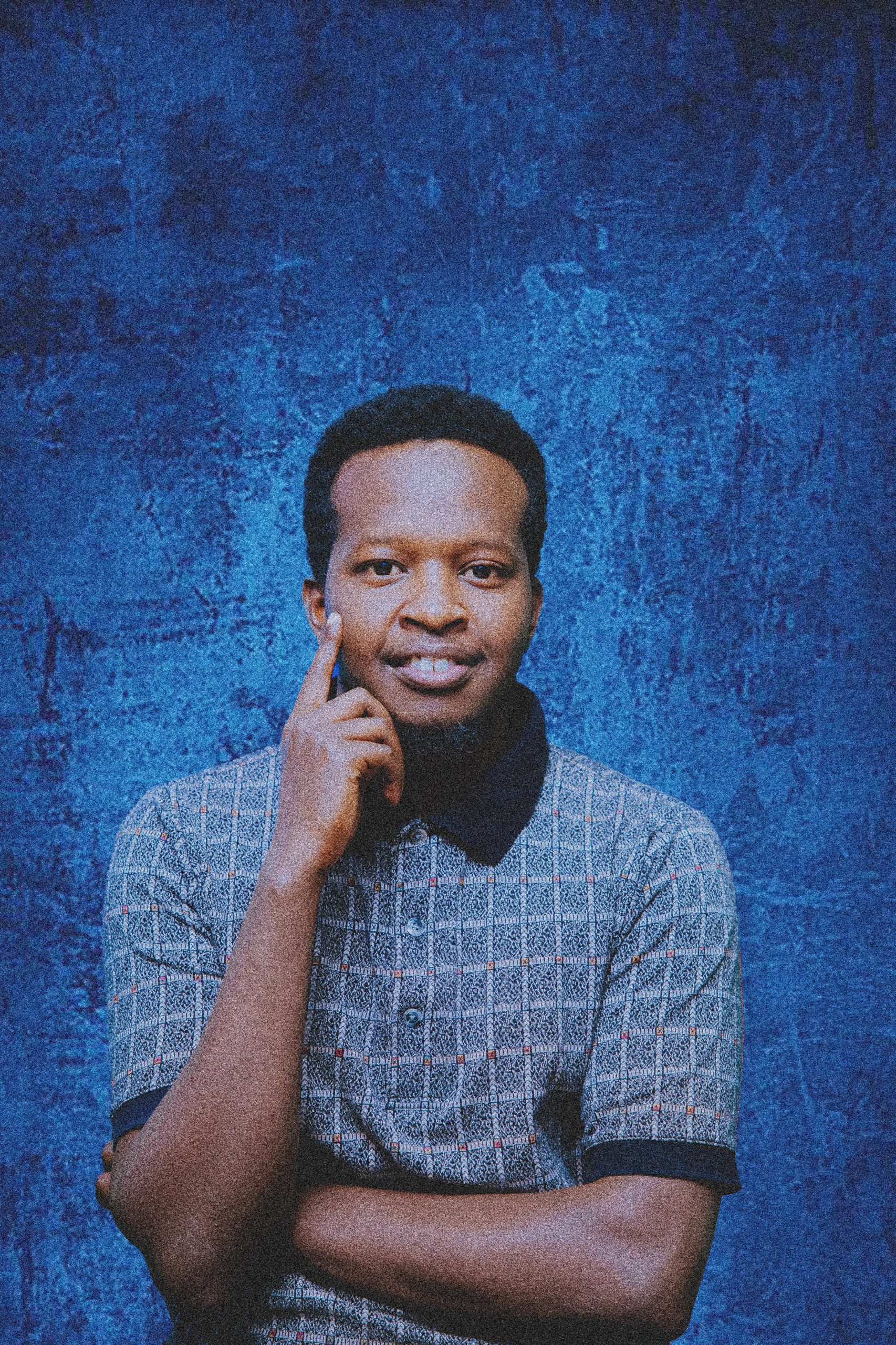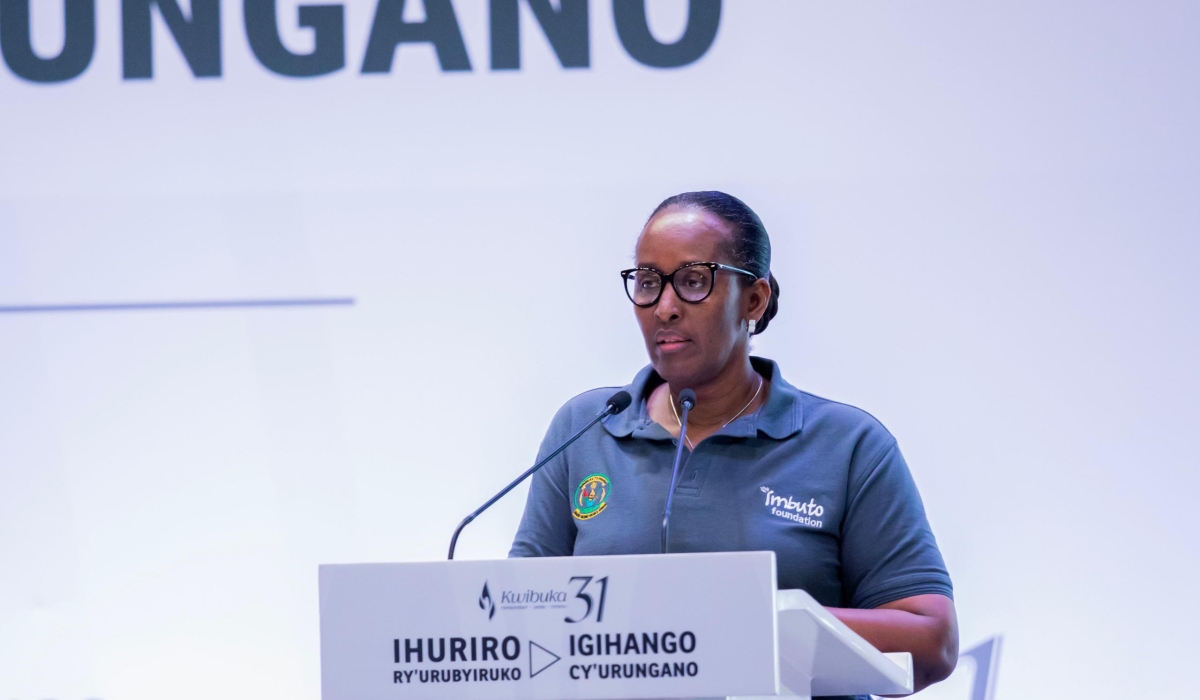First Lady Jeannette Kagame has called on young Rwandans to rise as guardians of unity and truth, urging them to remember the past and shape the future during the Igihango Cy’Urungano forum held at the Intare Conference Arena.
“Dear children, you did not choose our history, but you were born into Rwanda, and Rwanda is born in you,” she said. “It is the only country we have, one that we cannot afford to lose.”
The forum gathered hundreds of youth to reflect on the 1994 Genocide against the Tutsi and to honour the memory of young lives lost. The First Lady reminded them that choosing their beliefs and influences wisely is not just a personal decision, it affects generations to come.
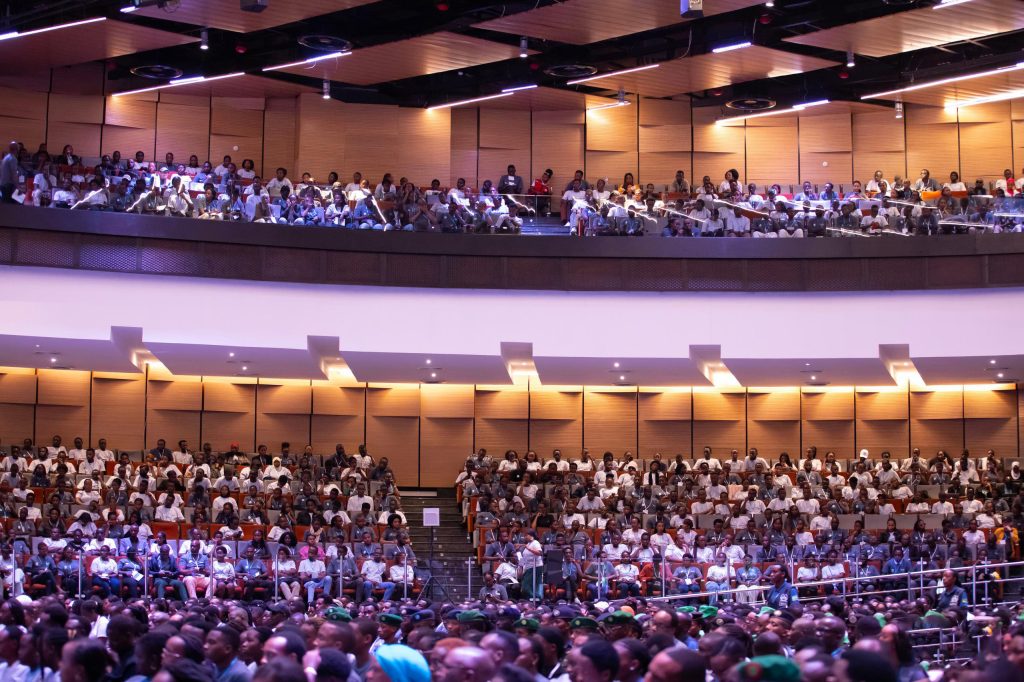
Initiated as a national space for reflection, Igihango Cy’Urungano challenges young people to fight genocide denial, promote dialogue, and carry forward testimonies that preserve the truth. It also champions Ndi Umunyarwanda, a unifying identity that encourages young citizens to embrace their common Rwandan heritage.
Jeannette Kagame acknowledged the potential of young people while also warning them of growing misinformation, especially on social media. “There are now people who have become self-appointed experts on Rwanda… anyone wakes up and feels they have something to say about it, supposedly for the good of Rwandans,” she cautioned.
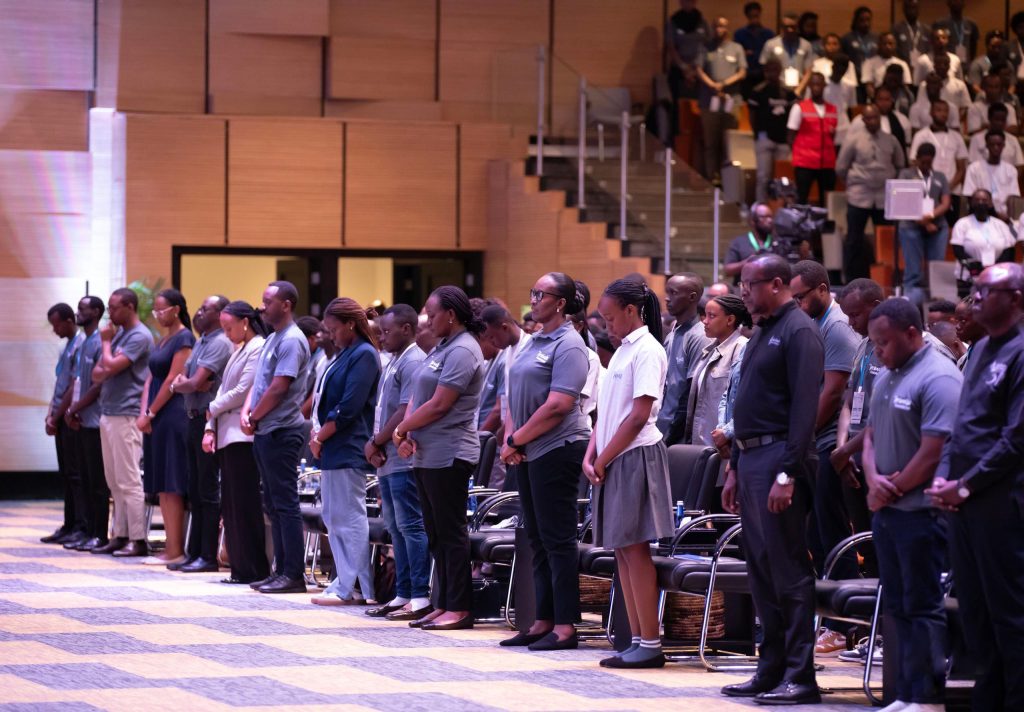
Dr. Jean Damascène Bizimana, Minister of National Unity and Civic Engagement, gave a strong historical context, explaining how the Genocide was rooted in decades of institutionalised division. He cited how the former regime used schools to enforce discrimination, with Tutsi students often excluded through policies disguised as academic quotas.
Between 1973 and 1977, only 4% of National University of Rwanda graduates were Tutsi. The minister also revealed how the concept of myopie social, the idea that admitting more Tutsi students was a sign of political blindness, was part of state policy. The regime even deployed ministers and local officials to implement exclusion and recruit students into extremist groups.
Bizimana pointed to the dangers of ethnic division, recalling incidents where Hutu students rioted in schools with Tutsi teachers, destroying property and deepening hostility.
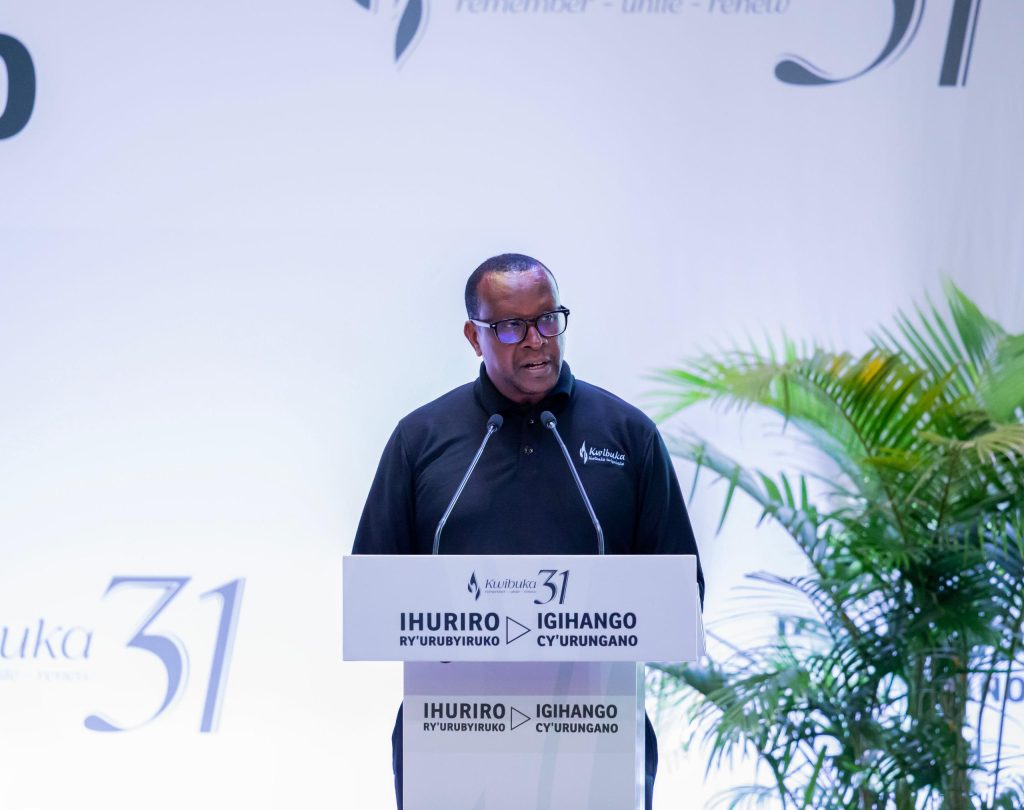
He encouraged young people to remain vigilant, stand against denialism, and contribute to Rwanda’s ongoing journey of healing and development.

